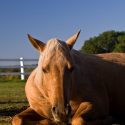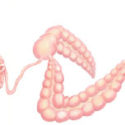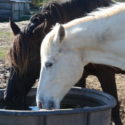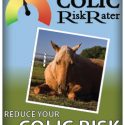equine colic
A Stable Gut: The Key to a Healthy Equine
Equine Guelph 2024 Research Annual Volume 21 – cover story by: Jackie Bellamy-Zions Gastrointestinal issues (GI) are the number one cause of morbidity in horses other than old age. An unhealthy digestive system can cause poor performance, pain, discomfort, diarrhea, and a whole host of issues that can sideline your horse. It’s no wonder researchers…
Equine Guelph talks Ulcers this February during Colic Prevention Education Month
Each February, Equine Guelph declares the month as Colic Prevention Education Month. The number one killer of horses, colic is a topic every horse owner wants to stay current on. Equine Guelph provides many ways for horse care takers to do just that with the Colic Risk Rater (www.TheHorsePortal.ca/ColicTool), a highly popular, free, online healthcare tool. And…
Equine Guelph declares February Colic Prevention Education Month
Equine Guelph has announced that the month of February, Canada’s coldest month, will be Colic Prevention Education Month. The next four weeks will be dedicated to increasing awareness of ways for caregivers to decrease the risk of colic in their horses. Although horses can be afflicted with gut pain in any season, the cold weather…
Equine Supplement Research Explores Potential Gastric Health Benefits
Collaborating on three recent research papers on a nutraceutical called ‘Gs Formula’, Dr. Wendy Pearson, PhD Associate Professor, at the University of Guelph has been very busy. Approached by GS Organic solutions out in BC, Pearson has been investigating the potential for Gs Formula to improve gastric health, particularly for horses with a history of…
Winter Water Woes and Colic Prevention
Nothing can drain the colour from a horse owner’s face quicker than hearing the word COLIC! Winter is an important season to focus on colic prevention and ward off water woes that can lead to impaction in the equine gut. Equine Guelph has many resources to reduce your horse’s risk of colic, including a FREE interactive…
Are You Concerned About Colic During Covid-19?
With many horses seeing their exercise schedules suddenly reduced or eliminated, questions have cropped up if this creates a higher risk of colic. Our National Code of Practice for the Care and Handling of Equines is clear: Horses must have some form of exercise or turnout unless under stall rest for medical reasons or severe environmental conditions make this…







